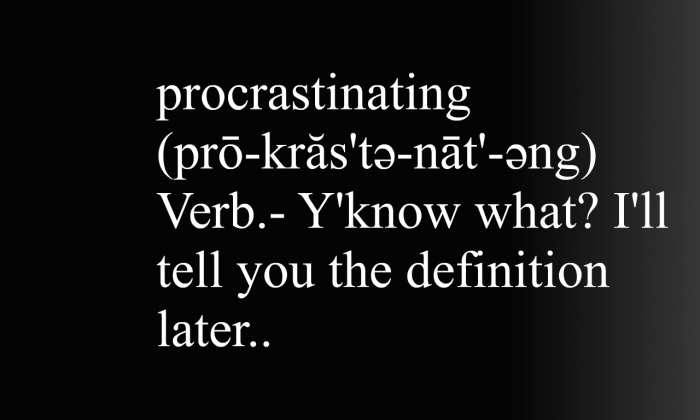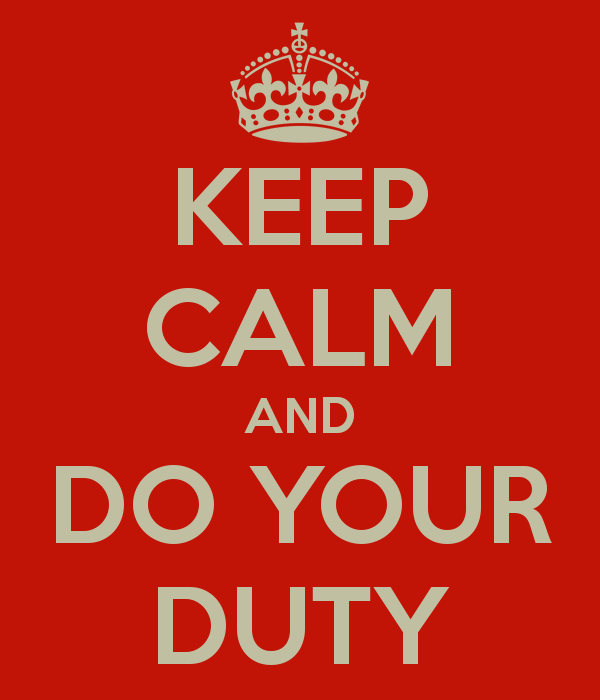
28 Mar How to Stop Procrastinating
The truth is that we all tend to put off some obligations and that’s perfectly normal. Even workaholics find themselves procrastinating when it comes to some tasks. Procrastinating is to some degree reasonable, however, putting off some tasks over and over again is a problem. When you do this, you focus on more enjoyable things, instead of focusing on the tasks that require effort. In order to stop procrastinating, you have to recognize when you started, try to understand the reasons and make better time management in order to achieve better results. The path to success isn’t fun and easy, but the outcome is priceless. No pain, no gain.
How to Recognize If You Are Procrastinating?

If you are watching the fifteenth video on YouTube with no particular reason, going through some friends’ profiles on social networks and reading some unimportant articles such as why Kim Kardashian bleached her hair, this means that you are avoiding some important tasks. Nobody likes obligations and exhausting tasks, so it is normal to put off some work for a short period of time. But if you are avoiding work for a long period of time and you spend hours on the Internet, unfortunately, that means you are a typical procrastinator. Some other characteristics of avoiders are getting up late, having a messy workplace, always being late, indecisiveness and always having an excuse prepared in advance. Don’t be an avoider, become a doer.
3 Types of Procrastinators
The two most common types of procrastinators are disorganized people and people who have a stressful or boring job. Disorganized people don’t have to-do lists and never manage to make a schedule. Because of the lack of organization, they cannot determine which task is a priority or how much time they’ll need for completing one task. The same goes for people who don’t like their jobs. Because of these unpleasantries, they try to avoid working by doing some unimportant but enjoyable things. The third type of “an avoider” is a perfectionist. These people often feel incompetent and insecure. In order for them to finish some work, they have to feel skillful and capable of performing in the best possible way. The moment they feel that they can’t meet all their requirements, they put off the work until they feel secure enough. People who work with a perfectionist have high standards and expectations when it comes to their work. Because of that, a perfectionist feels the pressure of not fulfilling their expectations and not acting according to his/her reputation. All three types don’t have to be necessarily lazy, the reason is often failure and fear of not being one of the best.
Think Why You Are Procrastinating

In order to be able to stop procrastinating, you have to pinpoint the moment when you started to avoid the work. Whether it is doing house chores or work, you have to know the difference between putting off because of doing some smaller important tasks and doing meaningless things. If you wind up watching the third episode of a TV show instead of working, you have to ask yourself why you are putting off doing obligatory work. Your answer will probably be that it is boring, unpleasant, tiring and demanding. But then, think about how will the completion of that task make you feel and if you are going to be happy, knowing that you completed something successfully. In order to come up with a solution to end this in the best possible way, you have to face the causes.
Stop Procrastinating Now

If you are searching YouTube for some videos on how to stop procrastinating or searching for 1-minute or 2-minute solutions to end your bad habit, you are facing a problem. Because avoiders don’t do anything thoroughly, they are always finding easy ways to finish something. There is no easy and quick way to beat the bad habit. However, if you follow these steps every day, you’ll eventually find out the magic of getting things done in time.
Step 1 – Don’t let anything distract you
When you feel like doing something else instead of working, stop for a moment and promise yourself that you’ll do enjoyable things after the work is done. Sit down and concentrate. If you finish your work on time, then you can do anything you want without feeling stressed. Turn off your mobile, e-mail notifications, log out from all social networks and turn off everything that might distract you. Distractions will find their way to lure you into the fun world of texting and spending your time on social networks, so make sure to prevent this from happening. When there is nothing to distract you, there is only one thing to do and that is work.
Step 2 – Setting goals and motivation
Find the purpose of your job and set some goals. If there is a purpose, there is a will to finish something meaningful. Motivation is the key to success and it is necessary for any kind of work. What motivates people most are money, the feeling of success and being proud of their work. If that doesn’t motivate you, then think of what makes you happy and will make you immediately complete the tasks. These personal rewards can be playing video games, watching more than one episode of a TV show, doing sports, going out and spending the whole evening just lying in bed. The things which fulfil you and make you happy are definitely better when done without your stress levels rising because you didn’t do the important tasks.
Step 3 – Organize yourself
Now, when you faced your problem, you can organize yourself. Write down the things that have to be done and the approximate time required to complete everything. Don’t forget to add the deadlines. Your schedule needs to be well organized and planned, so don’t be sloppy.
Step 4 – Step by step
Break some work into smaller tasks and by doing this, you’ll avoid getting exhausted and stressed. Also, you cannot be concentrated for a long period of time and because of that, take a 10 minute break between demanding tasks in order to relax. Moreover, you should turn on the alarm to warn you when you have to get back to business. If you feel as you can continue your work or you already had too many breaks, then turn to quicker and less demanding tasks.
*
Every day at work, you have to answer the questions: Why are you doing the job, what is the point and what do you get from finishing the task. After a week, you’ll end up coming to work and immediately starting to do your tasks. If you are not productive at your work and all your work is sloppy, then you have to find the cause of your exhaustion. Some of the most common causes are not getting enough sleep, not doing enough physical exercise and getting too stressed because of the amount of work. In order to get enough sleep, don’t watch TV at night, just lie in bed and relax. If you are in charge of some business and have a lot of work, but your productivity has reduced, then take a vacation. The business won’t fall apart if you are absent for a weekend… Right?

